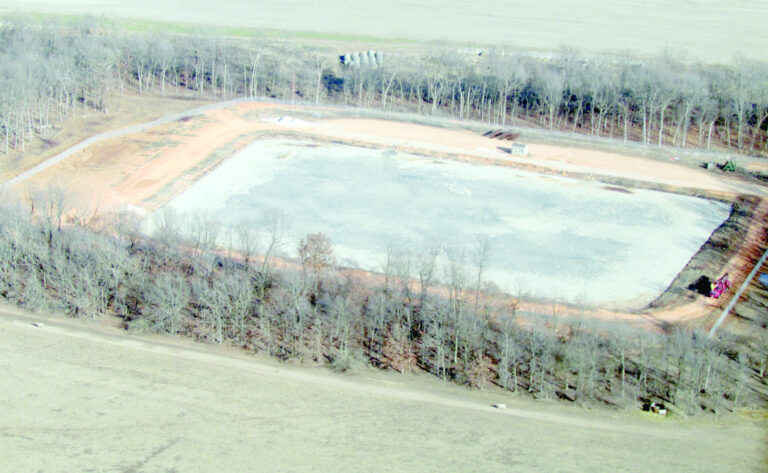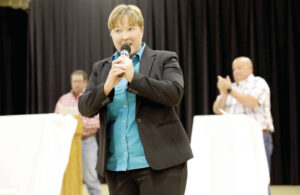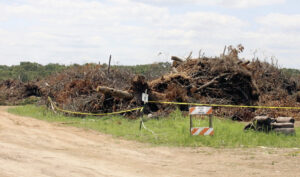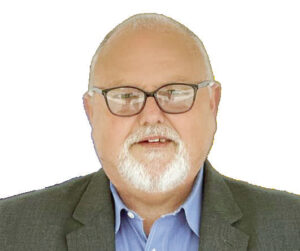A federal judge ruled on Jan. 18 that Tyson Foods, George’s Inc. and other poultry processors were responsible for polluting the Illinois River Watershed in Oklahoma with run-off from chicken litter that had been land-applied as fertilizer.
They are likewise responsible for cleaning it up, said the accompanying edict. In a four-state region where poultry production has long provided a livelihood for many area residents, what to do with byproducts from the industry has presented an ongoing conundrum for producers. Litter, or chicken manure, is just one of those byproducts.
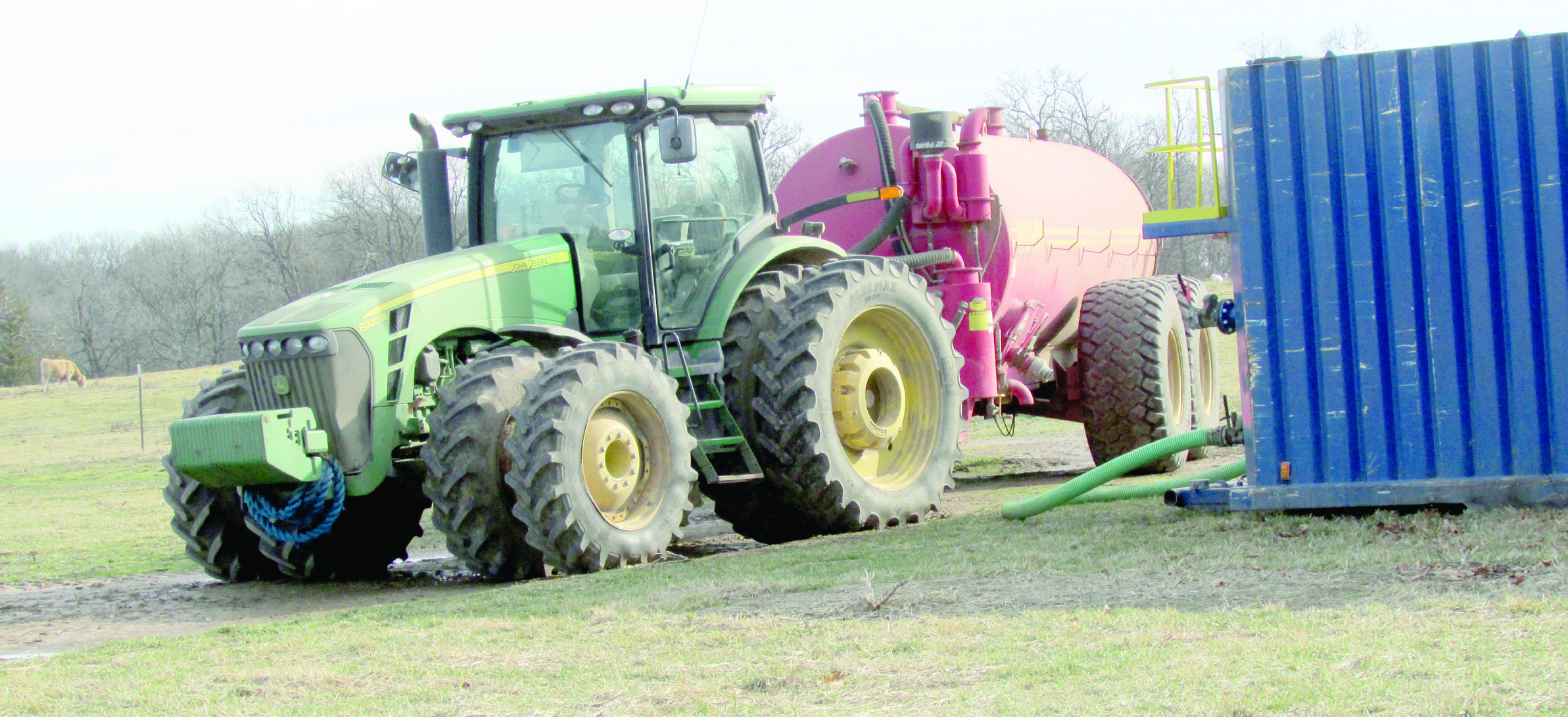
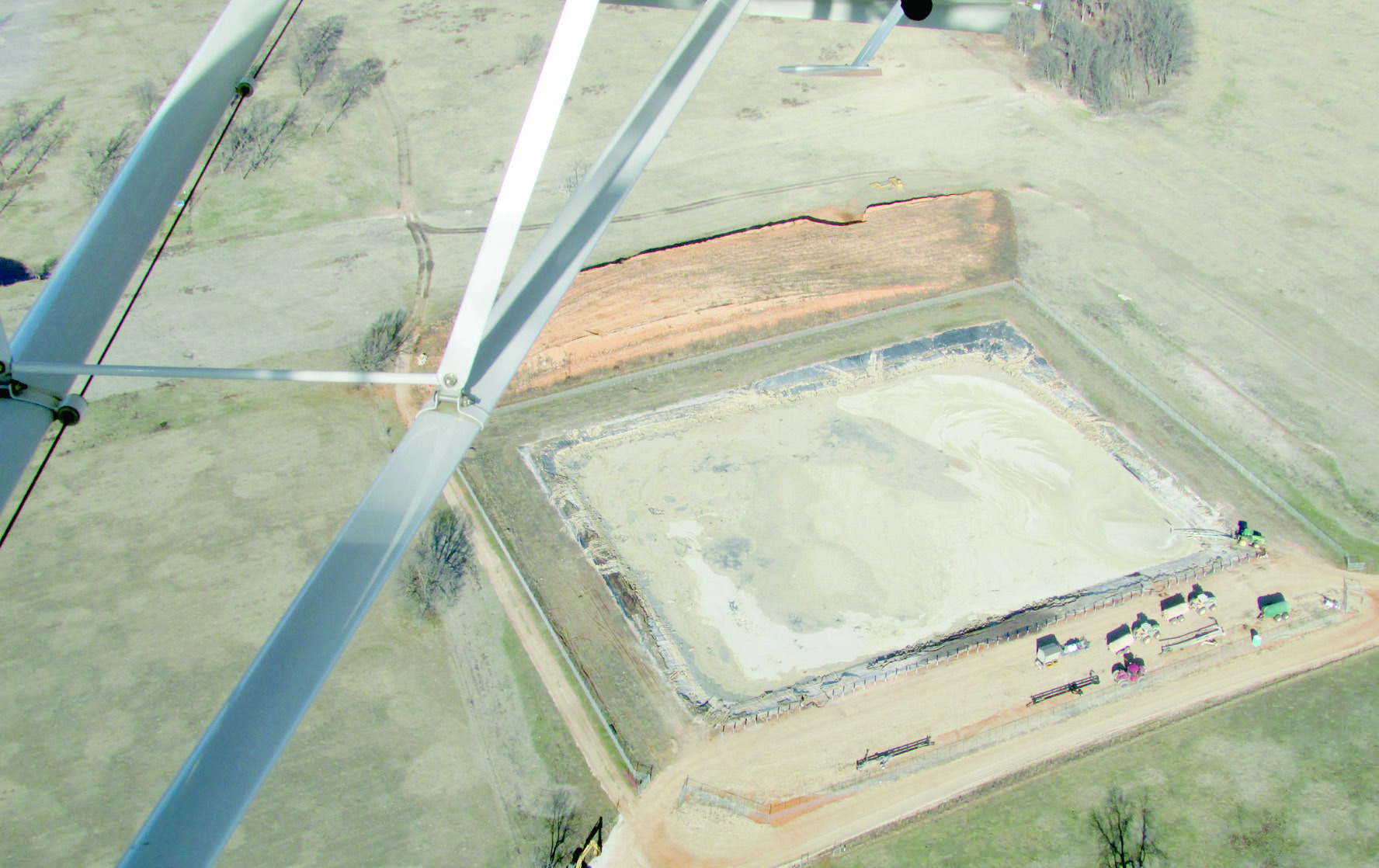
Another is wastewater residuals, which are now being land-applied by the 6,000-gallon tanker load as free fertilizer in Barry and nearby southwest Missouri counties. Two competing out-of-state companies – Maryland-based Synagro and Arkansas-based Denali Water Solutions (Denali) — are primarily engaging in the practice. Most of the poultry wastewater residuals they land-apply are brought into Missouri from Arkansas, according to a contract driver for Denali, whose name is being withheld.
“I usually haul in three loads [of the poultry waste] every day,” he said. “It goes to the same farm until that farm has reached its capacity. Other drivers are involved, too. For the farm I’m delivering to now, we probably bring in 10-15 loads every day, and drivers are delivering through the night, too.”
When the semis reach their intended destinations, the contents of their tankers are emptied into boxcar-like holding tanks and the driver goes on his way to pick up his next load. From the holding tanks, the material is transferred to spreading or plow/ injection units pulled by tractors.
Layne Baroldi, vice president of government affairs and tech services for Synagro, which contracts with George’s to remove its wastewater residuals, said soil samples are taken before any wastewater residuals are applied to determine the amount the soil can handle. Generous setbacks from property boundaries, buildings, waterways and bodies of water are also observed, he said.
Wastewater residuals are not to be confused with offal, which consists of chicken parts such as heads and parts of the viscera. Offal is a valuable source of protein and is sold to pet food producers by poultry companies, Baroldi said.
“Poultry processing is a freshwater usage-intensive process,” he said. “Most of the water is used for washdown of processing lines, etc. Spent water is first treated at the poultry wastewater treatment facility to remove small solid particles, small amounts of fats, organic material, etc. The separated material is referred to as wastewater residuals. The wastewater residuals generated by the water treatment process are hauled away by Synagro and land-applied as a fertilizer. The treated water is discharged or otherwise used by the poultry facility.
Baroldi believes that land-application of wastewater residuals is good for the environment.
“Instead of going into a landfill where it can generate dangerous levels of methane, it can be recycled to promote new growth,” he said.
On almost any given day, multiple semis hauling the cylindrical liquid-waste-hauling tanker-trailers bearing the logo of Synagro or Denali Water Solutions can be seen lumbering through Barry County, where they are most noticeable driving along Main Street in Cassville.
Barry County residents have mixed opinions about the land-application of wastewater residuals.
Landowners who apply the waste like it because it’s free.
“I’m just getting started in the cattle business and can’t afford expensive fertilizer,” said one Barry County landowner. “This is my second year to have Synagro apply this stuff. I was happy with last year’s result because it lowered my operating costs.”
His neighbors, however, aren’t so happy. The invasive smell from his fields, they say, is overpowering.
The smell, however, isn’t the largest concern for many residents, who question whether the waste is actually fertilizer.
Most of the residuals brought into southwest Missouri for land-application, said the Denali contract driver, are poultry residuals. As far as he knows, he said, they all are.
However, based on the list of Missouri fertilizer permit- holders shown on the Missouri Fertilizer Control Board’s website, in addition to poultry processors, both Synagro and Denali contract to haul the waste of other types of food and ingredient processors, and even a few Arkansas municipal wastewater treatment facilities. Just where that municipal sludge is land-applied, neither the Denali contract driver who spoke with the Cassville Democrat, nor Baroldi, could say.
The Missouri Fertilizer Control Board (MoFCB) in Jefferson City is permissive of the practice of out-of-state businesses hauling out-ofstate waste into Missouri for land-application. Those businesses pay tonnage fees to the MoFCB for the privilege of driving over Missouri roads. The MoFCB, a non-profit entity formed by a Missouri legislative committee in 2016, is also funded by grants and contributions. Most contributions come from corn and soybean grower associations, Director Steve Taylor said in an interview with the Cassville Democrat early last year.
The MoFCB’s stated purpose is to promote the fertilizer industry and uphold the Missouri Fertilizer Law. The MoFCB has given both Synagro and Denali the green light to land-apply wastewater residuals in Missouri by way of issuing them fertilizer permits, which serve as permit exemptions with the Missouri Department of Natural Resources (DNR). According to the Missouri Fertilizer Law, in order to qualify as a fertilizer, a substance must contain at least one plant nutrient — nitrogen, phosphorus or potash — and no contaminants. Reports from required test samples are filed with the DNR.
According to the MoFCB’s website, Synagro currently holds Missouri fertilizer permits in conjunction with six business contractors.
Denali Water Solutions has a much larger presence in Missouri. Acquired in early 2020, by TPG Growth, a global alternative assets firm, Denali holds Missouri fertilizer permits in conjunction with 106 business contractors. Sixty-three of those industries are located outside of Missouri. Forty-three are in Arkansas. Their Missouri portfolio has grown since last year, when their contractors numbered in the 80s.
In addition to holding more Missouri fertilizer permits than Synagro, Denali has another ace up its sleeve for the disposition of its wastewater residuals. The company has installed large wastewater storage lagoons on private land in Missouri. When the ground is too wet for land-application, residuals can be dumped into the lagoons and held until the time is right for application.
According to Heather Peters, with the Watershed Protection Section of the DNR, two of the Denali lagoons are located in Randolph and Macon Counties in northeastern Missouri. Two lagoons, each with an approximate storage capacity of two million gallons, are located in southwest Missouri, one on the property of Jerry Evans, south of Fairview in Newton County; and one on the property of Keith Gideon, five miles southwest of Stella in McDonald County.
The lagoons, Peters said, are exempt from DNR regulations and oversight unless there are reports of a discharge or runoff, because the storage units do not meet the definition of “agrichemical facilities.”
“On March 20, 2020, a representative of Denali Water Solutions submitted a statement that the Denali Evans Lagoon did not meet [that definition, based on] 10 CSR 20-2.010,” Peters said. [Denali also] included supporting operational information.”
Denali shared their design plans for the Evans lagoon with the DNR, which were prepared to meet the DNR’s regulatory standards for lagoons, Peters said.
The Evans lagoon, she said, was constructed with a compacted clay liner.
It was put into use in December 2020, according to a nearby neighbor who was first alerted to its purpose by the permeating smell emanating from it.
The DNR was not presented with a design plan for the Gideon lagoon, which was put into use in 2021. Peters said based on photographs, it appears to have a liner.
Publisher’s Note: This article is part of a multi-story series that will run weekly in the Cassville Democrat.





